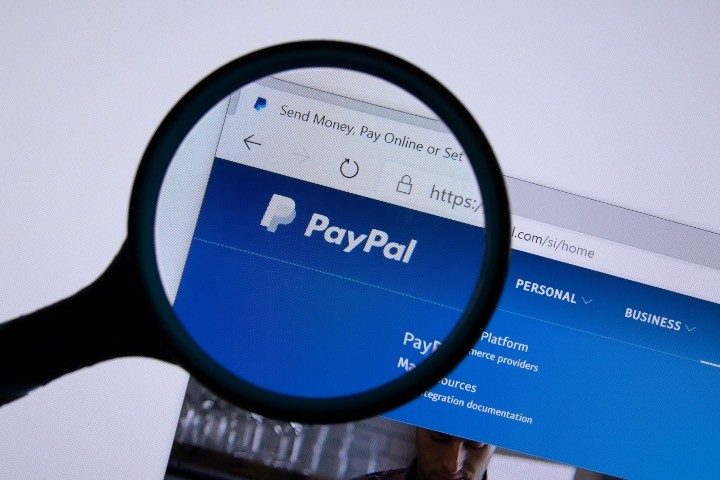
Are the mighty at last on the verge of falling?
PayPal has for years now been a giant in the digital payment processing sphere, often being a go-to for both personal and business transactions online. But an upcoming cut to its workforce raises questions about the company’s future.
On Tuesday, PayPal announced that it will eliminate approximately seven percent of its total workforce — which comes out to about 2,000 jobs cut. This is a response, the company said, to “the challenging macro-economic environment.”
PayPal stated that these cuts will take several weeks to complete, though it did not say in which organizations specifically they will occur; the company manages several well-known brands, such as Venmo, Xoom, and Honey.
“Over the past year, we made significant progress in strengthening and reshaping our company to address the challenging macro-economic environment while continuing to invest to meet our customers’ needs,” PayPal President and CEO Dan Schulman said in a Tuesday statement. “While we have made substantial progress in right-sizing our cost structure, and focused our resources on our core strategic priorities, we have more work to do.”
PayPal’s workforce cuts follow similar actions at other Silicon Valley fixtures like Facebook, Google, and Microsoft.
In November, Facebook’s parent company Meta announced the elimination of a whopping 11,000 jobs.
CEO Mark Zuckerberg penned the announcement email himself. In the message, he attributed the layoffs to the decisions made amid the pandemic, saying the company opted for aggressive hiring with the expectation of preparing for growth that didn’t materialize.
“Unfortunately, this did not play out the way I expected,” Zuckerberg wrote. “Not only has online commerce returned to prior trends, but the macroeconomic downturn, increased competition, and ads signal loss have caused our revenue to be much lower than I’d expected. I got this wrong, and I take responsibility for that.”
PayPal has, like many of the major tech companies, earned a reputation for censoring right-of-center speech under the guise of combating “hate speech” and “disinformation.”
Many users have experienced PayPal suspending their accounts due to their content, resulting in a loss of income. And how does PayPal decide who the offenders are? The company notoriously works with the far-left Southern Poverty Law Center to determine what kind of speech should be considered off-limits.
A Fox News piece from December documented the cases of a number of individuals whose means of transacting online were restricted over their political views.
The outlet reported:
PayPal, for example, suspended two U.K.-based organizations — the Free Speech Union, a free speech advocacy group, and The Daily Sceptic, a news platform started to publish stories critical of the COVID-19 lockdowns — in September 2022, which removed their access to funding. The accounts were reinstated two weeks later, but the founder and director of the organizations, Toby Young, told The Telegraph that “PayPal’s software was embedded in all our payment systems, so the sudden closure of our accounts was an existential threat.”
… Young’s personal account was also suspended and then reinstated. PayPal said the accounts violated its user policy but didn’t provide detail, and the Free Speech Union said it received no prior warnings. The payment platform has also said the First Amendment allows it to restrict accounts for any reason at any time.
As Young observed, “When they make decisions about whether they’re going to process payments for you, that can mean that your business is going under. That can mean that you will not survive because there’s no money coming in.”
In fact, PayPal found itself forced to backtrack in October when an extreme change to its Acceptable Use Policy (AUP) provoked widespread backlash. The updated language stated that the company would fine users $2,500 for “the sending, posting, or publication of any messages, content, or materials” promoting what the company considers disinformation and hate speech.
When this change caused an uproar, PayPal came out and said it was all a mistake.
“An AUP notice for the U.S. recently went out in error that included incorrect information,” the company said in a statement to Gizmodo. “PayPal is not fining people for misinformation and this language was never intended to be inserted in our policy. We’re sorry for the confusion this has caused.”
PayPal may soon be confronted by staunch competition from Elon Musk, the owner of Twitter. Under Musk, who ironically was a co-founder of PayPal, Twitter has reportedly applied for the licensing to become a payment processor in the United States.
The Financial Times notes:
Musk has said he wants Twitter to offer fintech services such as peer-to-peer transactions, savings accounts and debit cards, as part of a master plan to launch an “everything app” that incorporates messaging, payments and commerce. In 1999, Musk co-founded X.com, one of the first online banks, which later became part of payments giant PayPal.
Twitter’s plans won’t end with conventional currencies and payment methods; the company is leaving the door open to incorporating support for cryptocurrencies down the line. Twitter envisions itself creating a system that would compete with both PayPal and Apple Pay, allowing consumers to transfer money between each other and make contactless purchases at brick-and-mortar businesses.
But Musk has become a boogeyman for the Left since his purchase of Twitter, and thus it remains to be seen whether Silicon Valley’s allies in the federal government won’t extend a hand to strangle Twitter’s efforts by means of leftist regulators.
If Musk can pull it off, he may be making a welcome contribution to the American public. Competition and the free market are the ideal mechanisms with which to beat Big Tech.



